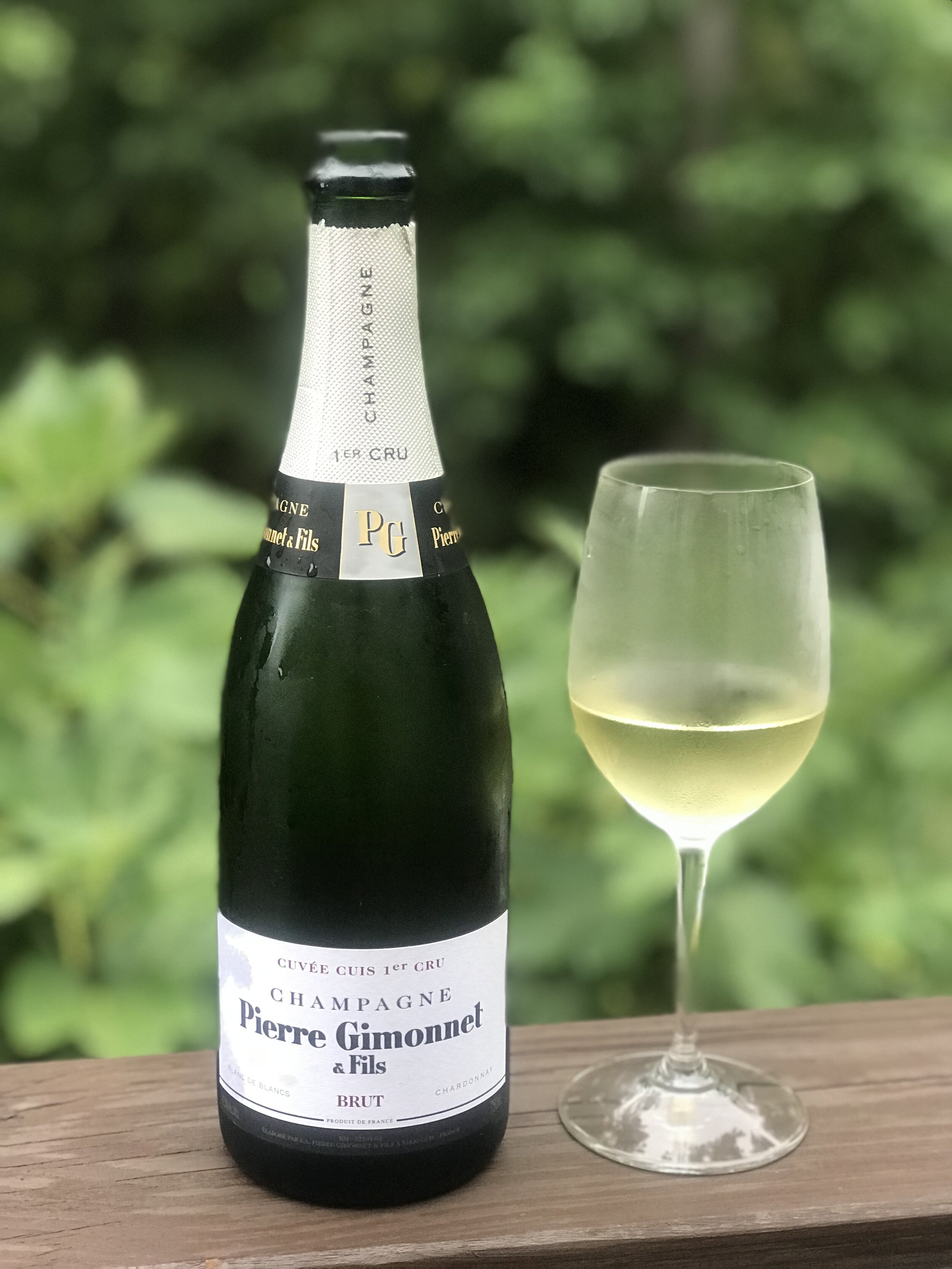In the past few years, wine lovers have been buying sparkling wines like Prosecco, Cremant, Cava, and wines from Champagne not only for the holidays or special celebrations but also for everyday drinking. With the increased frequency of consumption comes a common question: How long does champagne keep? Many of us are increasingly mindful of drinking in moderation and less likely to drink an entire bottle in one evening. Perhaps you are a single sparkling wine lover or your partner does not like sparkling wine and you need some advice on making champagne last. Here are some tips and tricks on storing opened champagne - or any other sparkling wine.
Before we continue with our review, a little about the KnowWines blog. We are an Amazon.com affiliate and we do receive a small commission if you purchase items through our affiliate links at no cost to you. The commissions we receive help us pay for web hosting fees, our podcast, products to test, and other costs associated with running this site. Thanks for using our affiliate links and supporting our independent blog!
How long does an open bottle of champagne keep?
An open bottle of champagne sealed with a stopper and placed in the refrigerator will keep for at least 24 hours. It is possible to use an inexpensive bottle stopper like this one (affiliate link) made of food-grade silicone. Keep in mind, though, if there is enough pressure from the bubbles, the stopper may become dislodged while it is stored, causing the the champagne to go flat.
With a stopper like this, the wine will start to lose some of its bubbles and freshness fairly quickly. However, it will still be good enough to make mimosas or other mixed drinks for a day or two!
Some people who like less aggressive bubbles may actually prefer champagne or sparkling wine on the second day. After three days, most sparkling wines become flat (not sparkling).
How do I keep an open bottle of champagne fresh?
When champagne or sparkling wine loses its freshness, it is simply due to the natural oxidation of the wine over time as it is exposed to air (read more about drinking your already-opened wine in our “How to Tell If Your Wine is Bad” blog!). To minimize the oxygen coming into contact with the leftover champagne in the bottle, there are a few options to seal the bottle that are a little better than a simple bottle stopper.
The first is the Kloveo champagne stopper (affiliate link), a highly rated stopper made in Italy.
We’ve used the Champagne Stopper by Kloveo for a few years, especially for inexpensive domestic sparkling wine or cremant.
For more expensive non-vintage or vintage champagne, we use the Repour Wine Preserver.
Check out our full review on the Repour Wine Saver, including our field test on a bottle of champagne.
For both the Kloveo and the Repour, bottles should stay standing up in the refrigerator once the enclosure has been placed on the bottle opening.
How do I keep an open bottle of champagne bubbly?
Regardless of the enclosure, the reason we recommend keeping an opened champagne or sparkling wine in the refrigerator is to slow down the loss of carbon dioxide. Carbon dioxide is more soluble in wine (and any other beverage) when temperatures are lower.
Can old champagne make me sick?
Old champagne (or any sparkling wine for that matter) will not make you sick (unless of course, you overindulge). If you are concerned about the quality of an older wine, assess it just as you would a container of milk you’ve had opened a few days in your refrigerator. If it looks unpleasant, smells unpleasant, and a few small drops on your tongue taste unpleasant, then yes, the wine has gone bad but won’t make you sick.
How long can I keep an open bottle of champagne in the refrigerator?
We recommend drinking any remnant champagne within 24 hours. However, when using the Repour Wine Saver (affiliate link), we’ve had some champagne that was still bubbly and fresh enough to drink three days later.
Will champagne freeze?
Yes, champagne (and any other sparkling wine) can freeze.
It is generally not a good idea to place sparkling wines in the freezer simply for the reason that one can forget the wine in the freezer. Upon opening the freezer door the next day, you can be greeted with a wine popsicle - and typically the cork has been compromised or pushed out of the bottle. While one can thaw and drink most still wines, sparkling wines often lose some of their bubbles after being frozen.
How long can I keep champagne or sparkling wine unopened? Does champagne expire?
When purchasing any sparkling wine or non-vintage champagne, a good rule of thumb is that it is still fresh and effervescent a few years after bottling. If you can’t find the year when the wine was bottled on the label, ask the wine bottle shop owner or staff. Some premium and luxury sparkling wines and non-vintage champagnes can be stored even longer than a few years. If your wine is vintage champagne (meaning that there is a vintage, or year, on the front of the bottle) these wines can age 15 years or more.
Not sure if your bottle is vintage champagne? Here’s an example of vintage champagne (left) next to non-vintage champagne (right). If it’s not clear if your particular wine is vintage champagne or not, you can scan a photo of it into an App like Vivino or CellarTracker (or ask your local wine bottle shop for help!).
Americans are trained to look for expiration dates on all sorts of goods, but expiration dates are uncommon in wines. Preferences vary significantly when it comes to consuming aged sparkling wines. If you are not sure if you like the taste of aged vintage champagne, consider looking for it by the glass at a restaurant or wine bar around the winter holidays and splurge on a glass. It’s much better to learn your taste preference by the glass rather than investing in a bottle you might not enjoy years down the road.
How do I store sparkling wine at home?
If you are going to drink your sparkling wine in a few weeks, then it is fine to store it at room temperature, away from light and heat. Don’t store it in the refrigerator long-term, as the cork might dry out, resulting in loss of carbonation or oxidation of the sparkling wine.
If you are going to store sparkling wine or champagne from a favorite producer over months or years, consider investing in a small wine refrigerator like this one. Or store in a closet as recommended by Roy Wilson, our recent podcast guest.
For more ideas on wine storage, read our detailed article on storing wine in your home as well as our reviews on small wine refrigerators and larger wine cabinets.
Does Champagne go Bad?
In conclusion, if you store your wine well before consuming it, and have an appropriate stopper to place in the bottle after opening, you can get one or more days of enjoyment out of that special champagne or sparkling wine.
The two enemies of any type of opened bottle of sparkling wine are oxidation and loss of carbon dioxide, which are fought valiantly by using a stopper and refrigeration, respectively. With those two in place, you can unwin(e)d for a day or two after opening that chilled sparkler!
Have you enjoyed champagne or sparkling wine a day or two after opening? Share your experience (or questions!) below.
Cheers!






